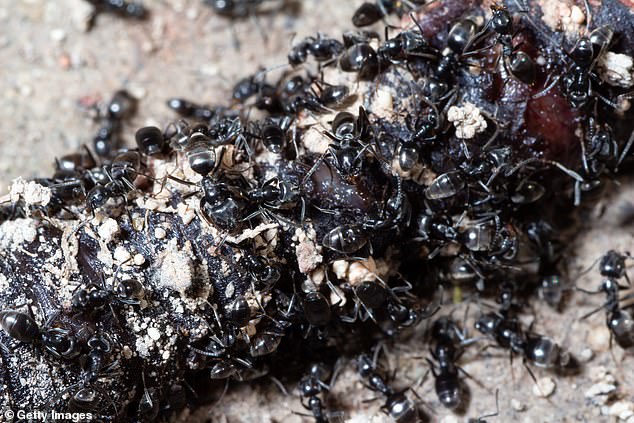
Invading Super Ant Mega-Colonies Cripple European Power and Infrastructure; Surge Toward UK
Invasive ‘Super Ant’ Threatens UK: Experts Warn of Tapinoma magnum Invasion
(Caption: Tapinoma magnum forming massive "supercolonies" across Europe. Photo: [Insert image from original article])
Britons are being urged to stay alert for an invasive “super ant” species, Tapinoma magnum, rapidly spreading across Europe. Originally from the Mediterranean and North Africa, this pest has infiltrated France, Germany, Switzerland, and the Netherlands, causing infrastructure damage and power outages. While not yet confirmed in the UK, experts warn it could arrive via imported plants or adapt to milder climates.
Destructive Behavior
Tapinoma magnum earns its “super ant” title by forming colossal colonies of up to 20 million ants spanning 60 acres. Unlike native ants, rival colonies merge into alliances instead of battling, creating sprawling networks. Their underground tunneling destabilizes roads, pavements, and playgrounds, while their habit of chewing through cables has caused internet outages and costly repairs in Germany and Switzerland.
When crushed, they emit a foul rancid butter odor—a key identifier.
(Caption: Infrastructure damage caused by super ant tunneling. Photo: [Insert image from original article])
Rapid Spread
The ants thrive in urban areas, exploiting potted plants and landscaping materials to hitchhike northward. “They’re cold-tolerant and thrive in disturbed environments like patios or garden centers,” says Niall Gallagher of the British Pest Control Association (BPCA). Climate change may also aid their expansion, as warmer winters make northern Europe more habitable.
In Switzerland, infestations have overwhelmed potato fields and public spaces. “You couldn’t see the floor anymore,” one resident told local media.
Identification Tips
Tapinoma magnum resembles the common black garden ant but can be spotted by their marching trails across pavements and buildings. Look for large, organized processions rather than scattered activity.
(Caption: Tapinoma magnum queen preparing to establish a colony. Photo: [Insert image from original article])
UK Preparedness
If detected, pest controllers plan to use bait gels and targeted insecticides. “Home remedies won’t work,” Gallagher stresses, urging reports to the Non-native Species Secretariat. Proactive monitoring is crucial, as early intervention prevented major outbreaks in Zurich.
What to Do if Spotted
- Avoid disturbing nests.
- Photograph ants and trails.
- Report sightings to authorities.
Experts warn that climate change could accelerate invasions of similar species, making public vigilance vital. As biologist Ricardo Pereira notes: “With warmer springs, more alien species will follow.”
(Caption: Map showing Tapinoma magnum’s spread across Europe. Image: [Insert interactive map from original article])
Stay Informed, Stay Alert
Check imported plants for ants and support policies limiting non-native species trade. Early action could prevent costly ecological and economic damage.
Word count: ~600


